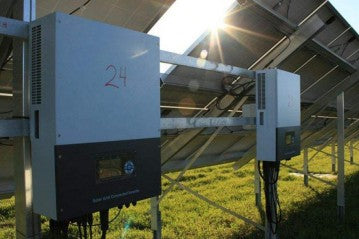
Does Hybrid Inverter Need Charge Controller?
If you are planning to install a solar energy system in your home or business, you might be wondering whether you need a charge controller for your hybrid inverter. A charge controller is a device that regulates the voltage and current coming from the solar panels to the batteries. It prevents overcharging, over-discharging, and reverse current flow, which can damage the batteries and reduce their lifespan.
A hybrid inverter is a type of inverter that can work with both grid power and battery power. It can switch between the two sources automatically depending on the availability and demand. A hybrid inverter can also feed excess solar power back to the grid or store it in the batteries for later use.
So, does a hybrid inverter need a charge controller? The answer is: it depends. Some hybrid inverters have a built-in charge controller, while others require an external one. The built-in charge controller is usually integrated with the inverter's software and hardware, and it can optimize the charging and discharging of the batteries according to the load and grid conditions. The external charge controller is a separate device that connects the solar panels, the batteries, and the hybrid inverter. It can be more flexible and customizable, but it also adds more complexity and cost to the system.
The advantages of having a built-in charge controller
- Simplicity: You only need one device to manage both the inverter and the charge controller functions. This reduces the wiring, installation, and maintenance costs and hassles.
- Compatibility: You don't have to worry about matching the specifications and parameters of the charge controller and the hybrid inverter. The built-in charge controller is designed to work seamlessly with the hybrid inverter's features and settings.
- Efficiency: You can avoid power losses and voltage drops that may occur when using an external charge controller. The built-in charge controller can also optimize the battery performance and extend its lifespan.
The disadvantages of having a built-in charge controller
- Limitation: You may have less flexibility and choice in selecting the type and size of the solar panels and batteries that you want to use. The built-in charge controller may have certain limitations on the input voltage, current, and power that it can handle.
- Upgrade: You may have difficulty upgrading or expanding your solar energy system in the future. If you want to add more solar panels or batteries, you may need to replace your hybrid inverter with a bigger one or use an additional external charge controller.
The advantages of having an external charge controller
- Flexibility: You can choose the type and size of the solar panels and batteries that suit your needs and budget. You can also adjust the settings and parameters of the charge controller to optimize your system's performance.
- Upgrade: You can easily upgrade or expand your solar energy system by adding more solar panels or batteries. You just need to make sure that your external charge controller can handle the increased input voltage, current, and power.

The disadvantages of having an external charge controller
- Complexity: You need to install and connect two devices instead of one. This increases the wiring, installation, and maintenance costs and hassles.
- Compatibility: You need to make sure that your external charge controller is compatible with your hybrid inverter. You need to check the specifications and parameters of both devices and ensure that they can work together without causing any problems or conflicts.
- Efficiency: You may experience some power losses and voltage drops when using an external charge controller. You also need to monitor and maintain your batteries regularly to prevent overcharging, over-discharging, and reverse current flow.
In conclusion, whether you need a charge controller for your hybrid inverter depends on several factors, such as:
- The type and model of your hybrid inverter
- The type and size of your solar panels and batteries
- The availability and cost of both devices
- Your preferences and expectations for your solar energy system
You should consult with a professional solar installer or supplier before making your decision. They can help you choose the best option for your situation and provide you with quality products and services.

0 Kommentare